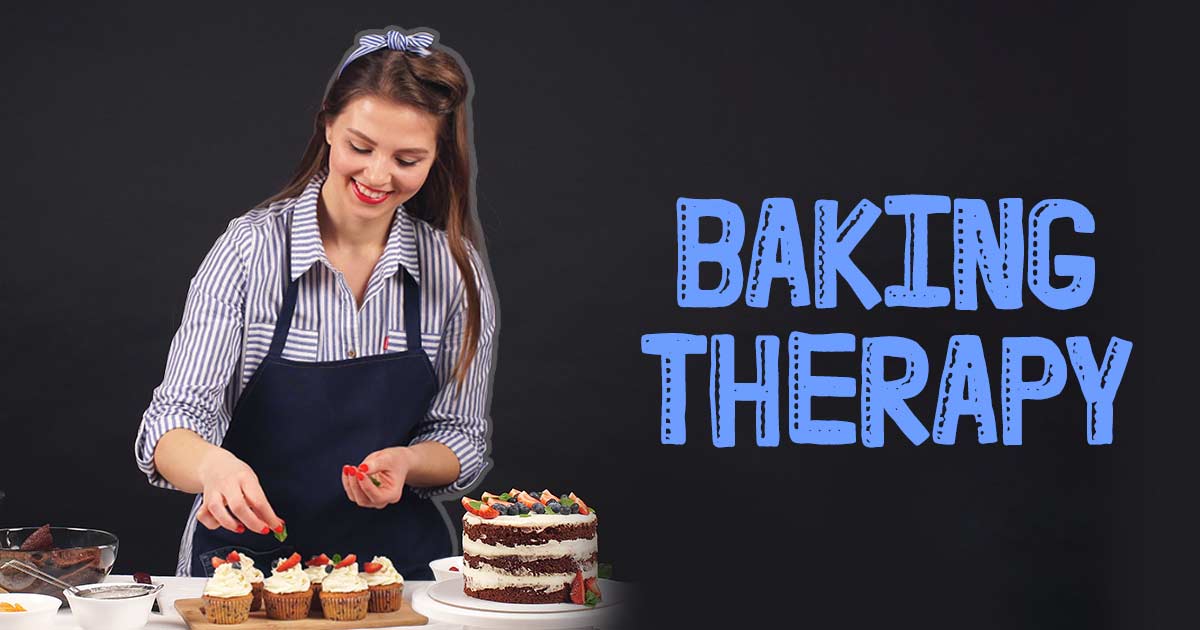In a fast-paced world where stress and anxiety have become all too common, people are continually seeking innovative ways to manage their mental health. One such method that has gained traction is “baking therapy,” a delightful blend of culinary art and self-care that offers a unique approach to nurturing mental well-being.
What Is Baking Therapy?
Baking therapy refers to the practice of using baking as a therapeutic tool to enhance mental and emotional well-being. It involves the process of creating baked goods, such as bread, cakes, cookies, and pastries, as a means of self-expression, relaxation, and stress relief.
The act of baking can be both meditative and creative, allowing individuals to focus their attention on the present moment while also expressing their creativity through the choice of ingredients, flavors, and decorations.
Baking And Mental Health
The connection between baking and mental health is multifaceted and supported by psychological research. Engaging in baking can trigger a sense of achievement and boost self-esteem as individuals witness the transformation of raw ingredients into delectable treats.
The rhythmic and repetitive actions involved in baking, such as mixing, kneading, and measuring, have a soothing effect on the mind, akin to mindfulness meditation. The scent of freshly baked goods can stimulate positive emotions and trigger memories, leading to a sense of comfort and nostalgia.
Furthermore, the scientific community recognizes the role of baking in promoting the release of endorphins – the “feel-good” neurotransmitters.
The process of baking and the consumption of the end product can activate reward centers in the brain, leading to a sense of pleasure and happiness. Baking can also serve as a healthy distraction from stressors and worries, redirecting focus and promoting relaxation.
Embracing Baking As Self-care
Incorporating baking into one’s routine as a form of self-care involves a conscious shift in mindset. It’s about recognizing that taking time for oneself, engaging in an enjoyable activity, and savoring the fruits of one’s labor are essential for maintaining mental well-being.
Baking as self-care provides an opportunity to unplug from the digital world and immerse oneself in a sensory experience that engages touch, taste, sight, and smell. This multi-sensory engagement has the potential to ground individuals in the present moment, reducing rumination and anxiety.
Embracing baking as self-care also means embracing imperfection. Baking, like life, is a blend of precise measurements and unexpected outcomes. The acceptance of baking experiments gone wrong teaches resilience and adaptability – qualities that are beneficial for coping with challenges beyond the kitchen. Embracing imperfection fosters self-compassion and promotes a healthier relationship with the self.
How To Go About Availing Baking Therapy
Availing baking therapy involves a mindful approach and a willingness to explore the benefits of the practice. Here’s a step-by-step guide to help individuals incorporate baking therapy into their lives:
- Set Intention: Begin by acknowledging the intention behind baking – whether it’s to unwind, practice creativity, or simply enjoy the process.
- Select Recipes: Choose baking therapy recipes that align with your skill level and preferences. Opt for dishes that excite you and spark curiosity.
- Gather Ingredients: Engage your senses while gathering ingredients for say cake baking therapy recipes. Pay attention to textures, colors, and scents, immersing yourself in the experience.
- Create A Ritual: Designate a specific time for baking, turning it into a ritual. Clear your mind of distractions and focus solely on the task at hand.
- Mindful Baking: Approach each step mindfully. Feel the dough in your hands, observe the batter’s transformation, and savor the aromas wafting from the oven.
- Embrace The Process: embrace both successes and mishaps. recognize that each outcome contributes to the overall experience of baking therapy.
- Document Your Effort: document your effort in a food journal or a “baking journal”. to enhance the aesthetics of your documentation, use stickers and affirmative baking therapy quotes like “baking a batch of happiness” or “kneading dough is like kneading worries.”
- Enjoy The Results: once your creation is complete, take a moment to appreciate your efforts. indulge in the flavors and textures with full presence.
- Share And Connect: share your baked goods with loved ones, fostering connections and spreading the joy you’ve experienced.
Therefore, baking therapy is a testament to the remarkable connection between culinary arts and mental health. Engaging in the process of baking not only offers an avenue for self-expression and creativity but also provides tangible benefits for mental well-being.
By embracing baking as self-care, individuals can find solace in the kitchen, cultivating mindfulness, resilience, and a healthier relationship with themselves. As individuals follow a mindful approach to baking therapy, they open the door to a world of sensory delight, personal growth, and emotional nourishment.






















